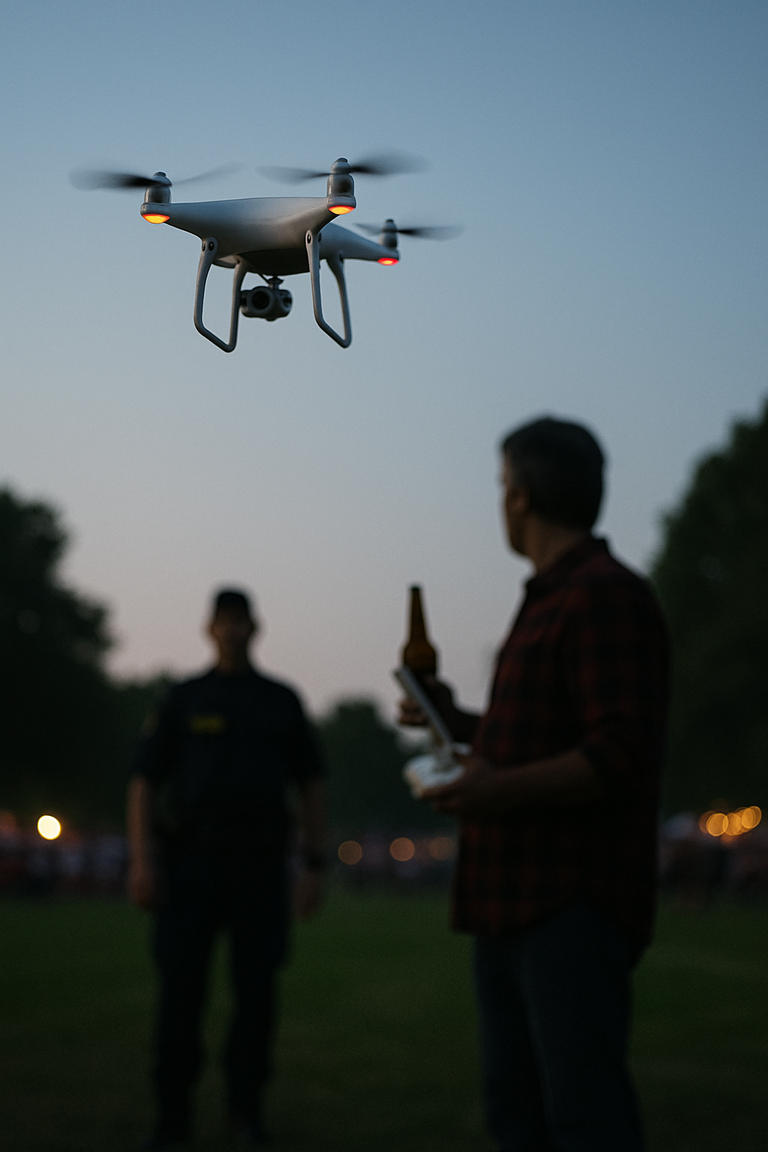In a legal first for Sweden, a 55-year-old man has been convicted of operating a drone while under the influence of alcohol, setting a precedent for how the country treats intoxicated behavior involving unmanned aerial vehicles. The incident occurred last summer in the town of Rättvik, a small community in central Sweden known for hosting classic car events that attract large crowds.
During one such event, Swedish police had deployed their own drone to monitor public safety when they detected another drone flying illegally in the area. At the time, a temporary no-fly zone had been established around the event for security reasons, making any unauthorized drone activity not only illegal but also a potential safety hazard.
The unauthorized drone was traced back to the 55-year-old man, who was found operating the device nearby. When confronted by officers, he initially admitted to flying the drone. A breathalyzer test administered at the scene revealed a blood alcohol level of 0.69 parts per thousand—more than three times the legal limit of 0.2 in Sweden. In contrast to many other countries, Sweden has some of the strictest laws on alcohol consumption, particularly when it comes to activities involving vehicles or machinery.

Image created with AI
Following his arrest, the man changed his story and claimed that he hadn’t been the one operating the drone. He told the court that a friend—who had since left the area—was the actual pilot. However, this explanation was not convincing to the court, especially given his initial confession and the lack of any evidence supporting his claim.
The district court ultimately found him guilty of reckless endangerment and violating airspace regulations while intoxicated. He was fined 32,000 Swedish kronor (approximately USD 2,900), which he is required to pay in daily installments over an 80-day period. The severity of the penalty reflects the court’s view on the potential dangers posed by drones, even when operated outside of traditional aviation.
“This is an aircraft, even though it flies on its own. It is operated by a person, and that person needs to be in control,” said Karin Hellmont, the chairman of the district court. She emphasized that while drones may seem harmless or recreational, they are still considered aircraft under Swedish law and can pose significant risks if operated irresponsibly—especially in crowded settings like public festivals or events.
The conviction has drawn attention to a legal gray area that many countries are still navigating: how to apply traditional vehicle operation laws—such as those concerning alcohol intoxication—to modern technologies like drones. In Sweden, this case could set a precedent for how future drone-related offenses are prosecuted, particularly as the devices become more common in both recreational and commercial use.
While Sweden is known for its progressive approach to technology, it also maintains a strict stance on safety. The country’s 0.02% legal blood alcohol limit (equivalent to 0.2 parts per thousand) is among the toughest in Europe. In comparison, the United Kingdom allows a much higher limit of 0.08%, while countries like Romania, the Czech Republic, and Hungary maintain a zero-tolerance policy.
This incident may prompt Swedish authorities to consider further public education around drone laws and the responsibilities that come with operating them. As drones continue to rise in popularity, both as toys and tools, ensuring that operators understand their legal obligations—especially in situations involving alcohol—will be key to preventing future accidents or legal complications.
Should operating drones while intoxicated be treated the same as drunk driving a car?
